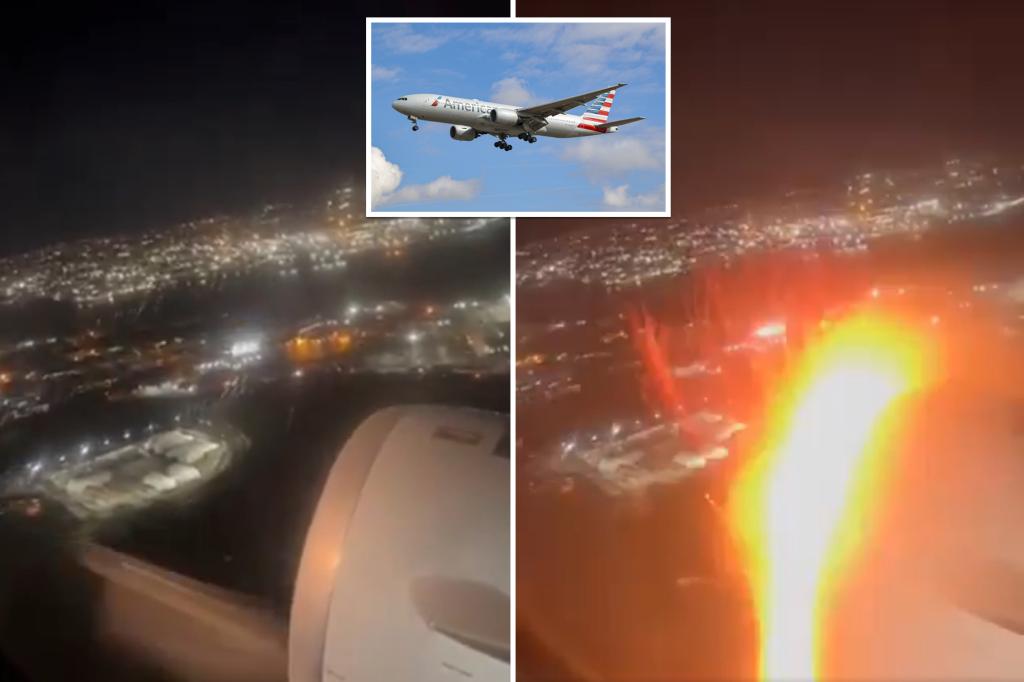On a seemingly ordinary Thursday evening, American Airlines Flight 1722 embarked on its journey from LaGuardia Airport (LGA) in New York City, destined for Charlotte Douglas International Airport in North Carolina. With a scheduled flight time of under two hours, passengers settled in for a routine trip. However, shortly after takeoff, their tranquil journey took a dramatic turn. As the Airbus A321 soared over the coast of Long Island, a bird collided with one of its engines, triggering a chain of events that instilled fear and uncertainty among those on board.
The impact of the bird strike was significant, rendering the right engine entirely inoperable. The sudden loss of power and the accompanying sounds and vibrations understandably alarmed the passengers. Some reported seeing flames and hearing explosions, leading them to believe the worst – that the plane was going down. Amidst the chaos, the pilots skillfully maneuvered the aircraft, relying solely on the remaining engine, and made an emergency landing at JFK International Airport, offering a much-needed sense of relief to the shaken passengers.
Passenger accounts paint a vivid picture of the harrowing experience. Amy Stamper from Tennessee expressed her sheer terror, confessing that she thought she was going to die. Another passenger, who wished to remain anonymous, recounted the chilling sight of flames erupting from the engine, leading to a similar fear of imminent death. The shared sentiment of terror underscores the gravity of the situation and the emotional toll it took on those aboard Flight 1722.
Eric Halili, a 43-year-old father of two, was deeply affected by the near-disaster. He recounted the traumatic experience, emphasizing the agonizing wait for their luggage after the emergency landing, which only prolonged the ordeal. Halili’s primary concern during the frightening moments was his family, the thought of not returning home to his wife and children weighing heavily on his mind. While relieved to be safe, the incident cast a shadow over his trip, leaving him shaken and unable to fully enjoy the New York visit.
For Misleidy, a 26-year-old returning to Florida after her honeymoon in New York, the flight was a twist of fate. Having missed her initial flight, she boarded Flight 1722, unknowingly placing herself in the path of the unexpected event. While initially dismissing the commotion as minor, the reactions of fellow passengers quickly alerted her to the seriousness of the situation. Despite the fear that crept in, she commended the flight attendants for their professionalism and composure in calming the distressed passengers, highlighting a silver lining amidst the chaos.
In the aftermath of the incident, authorities confirmed that no injuries were reported, a testament to the skill of the pilots and the effective emergency response. American Airlines provided hotel accommodations for the stranded passengers and rescheduled the flight for the following morning, striving to mitigate the disruption caused by the unexpected detour. The Federal Aviation Administration is likely to investigate the incident to determine the precise cause and contribute to ongoing efforts to prevent similar occurrences in the future. While bird strikes are relatively common, this event underscores the potential dangers they pose and the importance of robust safety protocols in aviation. The passengers of Flight 1722, though shaken, can find solace in the fact that their ordeal ended safely, thanks to the combined efforts of the flight crew and emergency responders.










